What Is a Mortgage? A Complete Guide for Homebuyers in 2025
If you’re considering buying a home in 2025, you’ve likely heard the word “mortgage” dozens of times. But what exactly is a mortgage, how does it work, and what should you know before applying for one? Whether you’re a first-time homebuyer, a veteran using your VA loan benefits, or someone looking to refinance, understanding the basics of mortgages is essential to making informed financial decisions.
In this guide, we’ll break down everything you need to know about mortgages, types of mortgage loans, how they work, and how you can get started with a reputable lender like Forever Home Financing. We’ll also include key resources from HUD.gov and VA.gov to help you explore your homeownership options.
What Is a Mortgage?
A mortgage is a loan used to buy or refinance real estate. When you take out a mortgage, you borrow money from a lender (like a bank or mortgage company) to purchase a home. In return, you agree to pay back the loan amount over time—typically in monthly payments that include both principal (the original loan amount) and interest (the cost of borrowing).
Until the loan is fully repaid, the lender holds a legal claim (called a lien) on the property. If you fail to make payments, the lender has the right to foreclose, or take back the home.
Key Mortgage Terms to Know
Before diving deeper, here are a few terms every buyer should know:
- Principal: The original amount you borrow.
- Interest: What you pay the lender for the ability to borrow money.
- Amortization: The process of gradually paying off a loan through regular payments.
- Escrow: An account where funds for taxes and insurance are held.
- Down payment: The portion of the home’s price you pay upfront.
- PMI (Private Mortgage Insurance): Required for many conventional loans if your down payment is less than 20%.
How Does a Mortgage Work?
Most mortgages are long-term loans, typically spanning 15 to 30 years. Monthly payments include:
- Principal – a portion that reduces your loan balance.
- Interest – the cost charged by the lender.
- Taxes – property taxes that may be collected in escrow.
- Insurance – homeowner’s insurance and sometimes mortgage insurance.
The total amount you repay over the life of the loan is significantly more than the amount you borrowed due to interest, especially with longer terms.
Types of Mortgages
There are several types of mortgages, and the right one depends on your financial goals, background, and eligibility.
1. Conventional Loans
These are standard loans not backed by the government. They typically require higher credit scores and larger down payments but may offer lower overall costs. PMI is required if your down payment is under 20%.
2. FHA Loans
Insured by the Federal Housing Administration, FHA loans are ideal for first-time buyers and those with lower credit scores or limited savings. With down payments as low as 3.5%, they are more accessible but come with mortgage insurance premiums (MIP).
Learn more about FHA loan options at HUD.gov.
3. VA Loans
If you’re an active-duty service member, veteran, or eligible spouse, you may qualify for a VA loan—a mortgage backed by the U.S. Department of Veterans Affairs. These loans typically require no down payment, no PMI, and offer competitive interest rates.
Explore VA mortgage benefits at VA.gov.
You can also apply through an expert lender like Forever Home Financing, which specializes in helping veterans secure the best mortgage terms.
4. USDA Loans
Offered to buyers in rural areas, USDA loans require no down payment and are backed by the U.S. Department of Agriculture. They have income and location eligibility requirements.
Who Offers Mortgages?
Mortgages are offered by a range of lenders, including:
- Banks
- Credit unions
- Mortgage brokers
- Direct lenders, like Forever Home Financing, known for providing personalized service and competitive rates.
It’s smart to shop around, compare interest rates, and evaluate closing costs before choosing a lender.
Steps to Getting a Mortgage
Here’s a step-by-step breakdown of how the mortgage process works:
1. Check Your Credit
Lenders will evaluate your credit score to determine your eligibility and interest rate. FHA and VA loans have more flexible credit requirements, but a higher score can help you secure better terms.
2. Get Pre-Approved
A pre-approval letter shows sellers that you’re a serious buyer and gives you a clear budget. Companies like Forever Home Financing offer fast, no-obligation pre-approvals online.
3. Choose the Right Loan Type
Your lender will help you decide which type of mortgage fits your needs, factoring in things like down payment, credit, income, and whether you’re a veteran.
4. Find a Home and Make an Offer
Work with a real estate agent to find a home, and submit a competitive offer. Once accepted, the mortgage process continues.
5. Submit Your Mortgage Application
Your lender will collect documentation like income verification, tax returns, and bank statements.
6. Home Appraisal and Underwriting
The lender will order a home appraisal to confirm the property’s value and run a full underwriting review to evaluate your risk.
7. Close on Your Home
At closing, you’ll sign the final paperwork, pay your down payment and closing costs, and get the keys to your new home.
Mortgage Rates and How They Affect You
Your mortgage interest rate plays a major role in how much you’ll pay monthly and over the life of the loan. Rates can vary based on:
- Credit score
- Loan type and term
- Down payment size
- Economic conditions
- Lender fees
To explore the latest rates and get a quote, visit Forever Home Financing’s rate tools.
Should You Get a Mortgage in 2025?
While housing markets can fluctuate, 2025 presents strong opportunities for homebuyers—especially with:
- Continued support for low-to-moderate income borrowers via FHA
- VA loan benefits for veterans
- Digital tools that simplify the home loan process
Plus, Forever Home Financing offers a wide range of loan programs and can guide you through every step.
Government Resources for Homebuyers
These sites are reliable sources for updated eligibility guidelines, loan limits, and buyer assistance programs.
Final Thoughts: Mortgage Basics Made Simple
A mortgage isn’t just a loan—it’s your path to homeownership. By understanding how mortgages work and exploring your options (like FHA, VA, and conventional loans), you’ll be in a better position to make informed decisions and achieve your real estate goals.
Whether you’re a first-time homebuyer or a military veteran, working with a trusted lender like Forever Home Financing can make the mortgage process smoother, faster, and more transparent.
Ready to Take the Next Step?
Start your home loan journey with a free pre-approval at Forever Home Financing. Have questions about VA or FHA loans? Visit VA.gov or HUD.gov for detailed program information.

